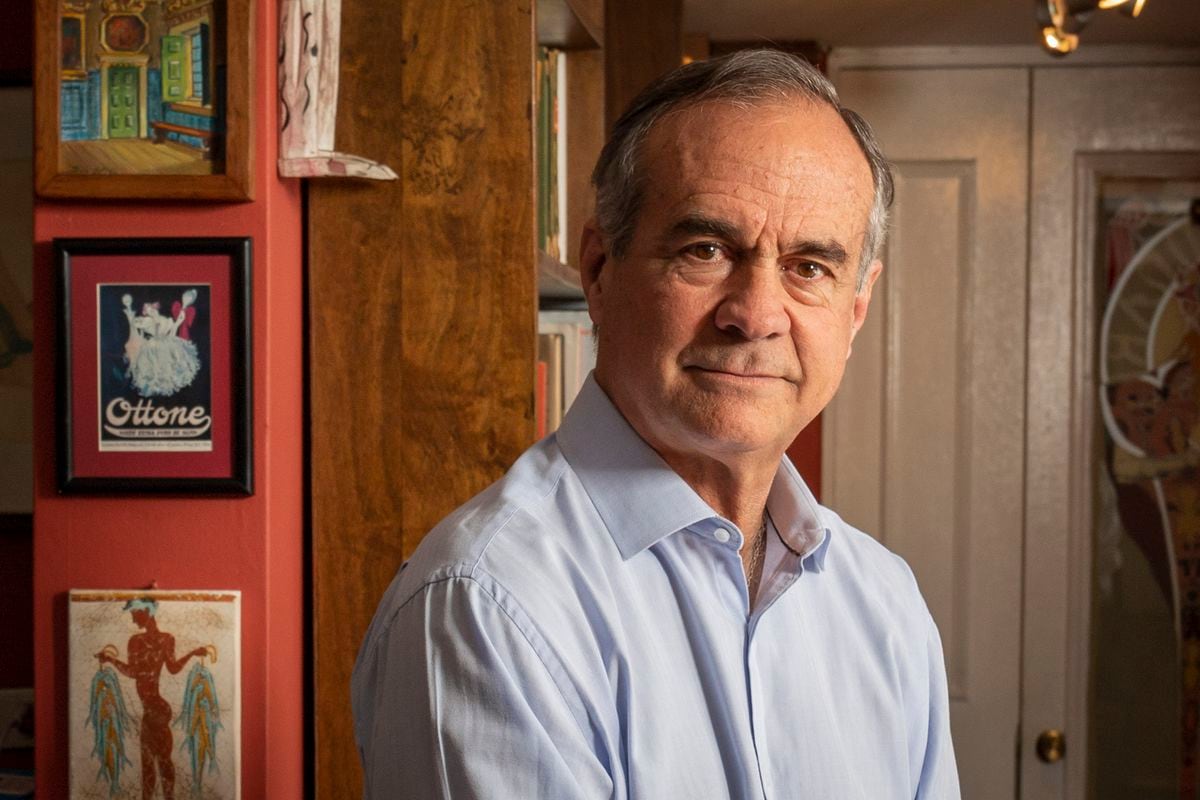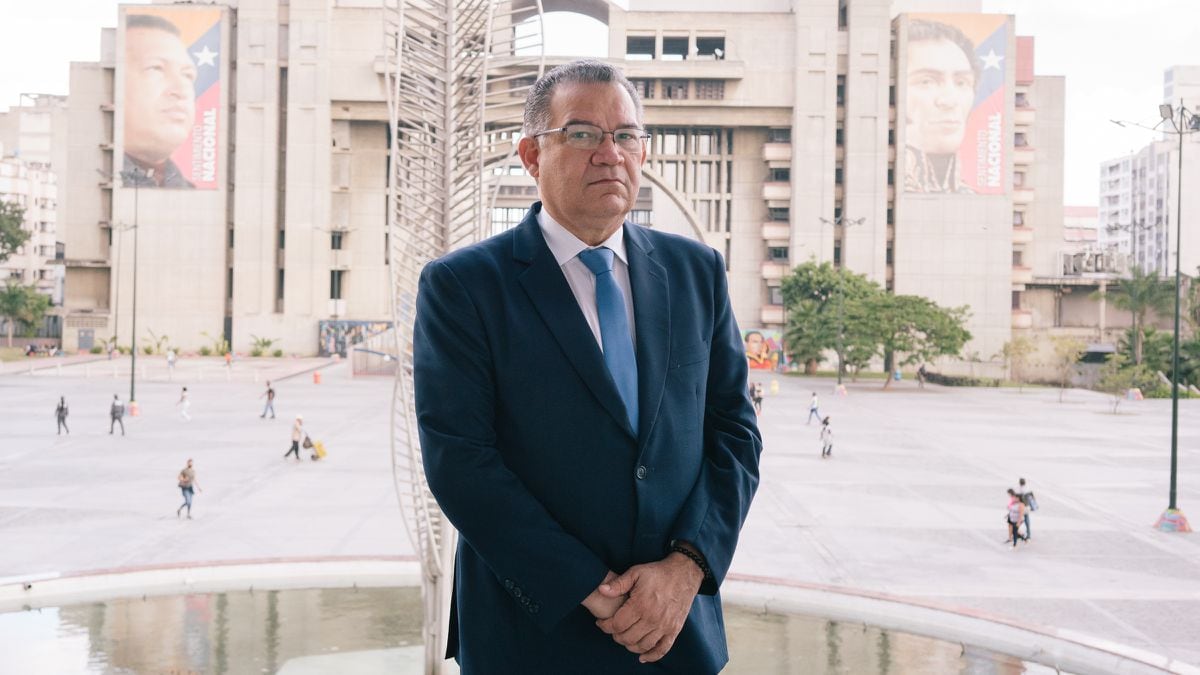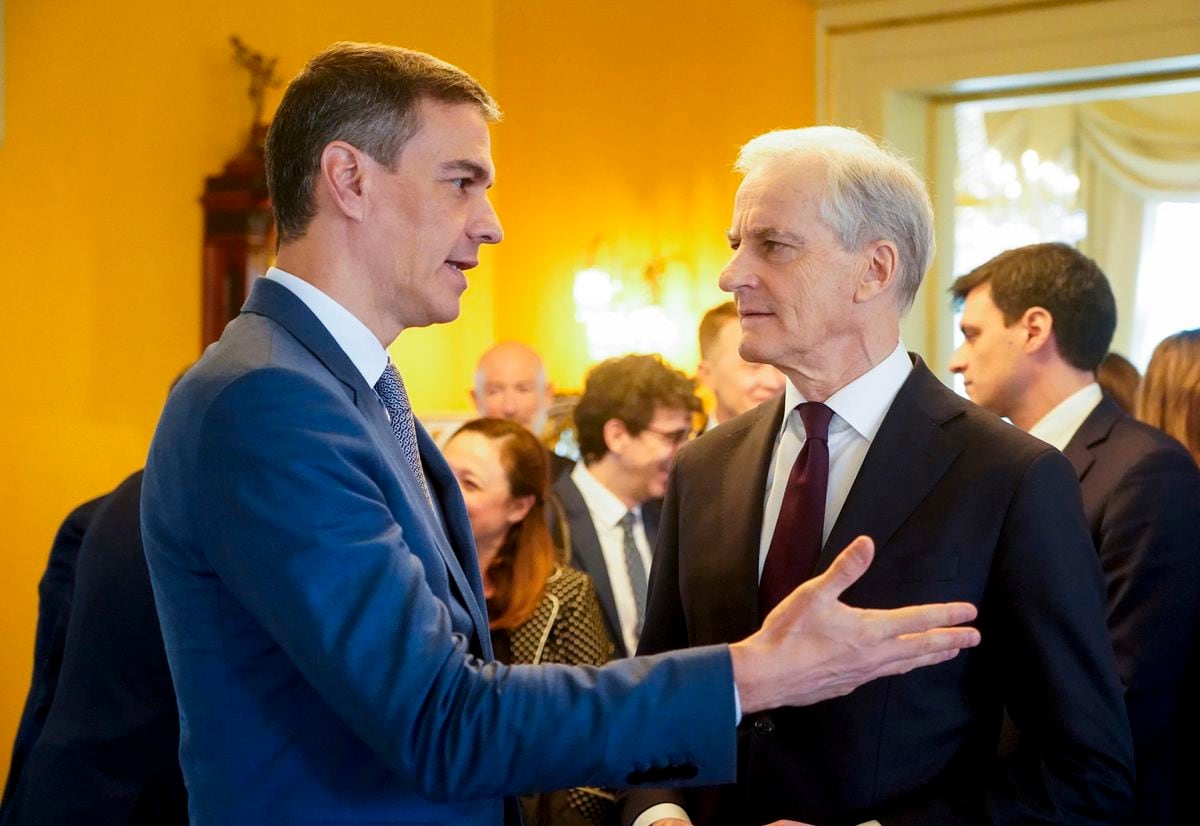Thursday was a very long day for the head of Spanish diplomacy, José Manuel Albares.
He landed early in the morning in Barcelona, to participate in the Union for the Mediterranean (UPM) forum, and ended up, late at night, in the Chamber of Congress, where the new Cooperation Law was approved by a large majority (201 votes), with the opposition of Vox and the abstention of the PP.
Meanwhile, a breakfast with his Moroccan counterpart Naser Burita;
his first interview with Antonio Tajani, foreign minister of the new Italian prime minister, the ultra Giorgia Meloni;
and the announcement that the Maduro government and the opposition will resume this weekend in Mexico negotiations that have been broken since October 2021.
Ask.
Starting with the latter: is Spain going to play any role in the negotiations with Mexico?
Response.
If the Venezuelans want to, without a doubt.
When I met with the negotiators of both parties [at the Spanish Embassy] in Paris [on the 11th] I told them that Spain is at their disposal for anything that can be useful.
From there they are the ones who set the agenda.
They told me that they are going to consider it [the offer] very seriously.
More information
Albares hopes to close an agreement with London soon that involves the demolition of the Gate
Q.
Are you serious this time?
There have been several unsuccessful attempts at negotiation.
R.
Only they can know, but in the conversation I had with both of them, both together and separately, they showed me that they are willing to reach agreements.
Q.
Spain has not had an ambassador in Venezuela since November 2020. Could you name him now?
R.
That was a political gesture that was taken to promote certain conditions.
If these conditions —which are those of dialogue between Venezuelans, that they take their destiny into their hands and decide the best way to advance along the democratic path— occur, as we are beginning to see today, of course it is a decision that is perfectly susceptible to be reversed
Spain does not want to see itself without an ambassador in a sister country in Latin America, nor in Venezuela, nor in any other.
Q.
What signal should Maduro give for Spain to return its ambassador?
R.
That the dialogue starts, as it is designed in Mexico, would be a very good sign.
Q.
Wouldn't that break the consensus of the European countries that do not have an ambassador in Caracas?
A.
Not at all.
France never lowered the status of ambassador to chargé d'affaires.
And Portugal, which did, recently raised it.
The measures [sanctions] that the EU approved were intended to promote dialogue between Venezuelans.
If this occurs and progress is made on the correct path, none of these measures has the vocation of permanence.
Q.
The Colombian government and the ELN guerrilla are negotiating in Caracas.
Has Spain also offered itself there?
R.
As in Venezuela, we are willing to help.
Foreign Minister Álvaro Leyva said it at the meeting of foreign ministers of the EU and CELAC [Community of Latin American and Caribbean States]: Spain and Chile will be accompanying countries in this peace process.
Q.
In Barcelona you met with your Moroccan colleague, Naser Burita.
R.
It is the seventh time that we do it.
Forty-eight hours earlier we had another, shorter meeting in Fez.
We have analyzed the road map of the Spanish-Moroccan declaration of April 7 [when Sánchez was received in Rabat by Mohamed VI].
We verify that all the points are being met, and we have addressed the next High Level Meeting (RAN) and the land passage of goods from Ceuta and Melilla.
For the RAN [summit chaired by the heads of government] we have seen that the last week of January, the first week of February, may be the date on which it takes place [in Rabat].
Regarding the first passage of goods, next week there will be a technical meeting to take place before the RAN.
José Manuel Albares, during the interview in Barcelona.Carles Ribas
Q.
What is a “regional customs”?
A.
I don't know.
What we are talking about is the transit of goods through land customs steps provided for this purpose.
Q.
The Government Delegation in Ceuta has said that it will be a "regional customs office", limited to vehicles weighing up to 3,500 kilos, vans and
pick-ups.
A.
As in the case of people, the passage of goods will be gradual and orderly.
There are images from the past that we do not want to see again, an atypical trade that is not good for Spain or Morocco.
We are going to advance in phases on a solid and satisfactory model.
Q.
And in Melilla, is customs going to work as before it closed in the summer of 2018?
R.
There is a technical negotiation and I am not in the day to day, but the idea is that it be a homogeneous model for Ceuta and Melilla.
Q.
A model limited to 3.5 ton vehicles?
A.
Limited is not the word: orderly and gradual.
Q.
Is the goal to eventually have a normal international customs office?
R.
That there is a normal passage of goods between Ceuta and Melilla and Morocco.
Q.
What has to happen for relations with Algeria to normalize?
R.
With Algeria we have an outstretched hand from the outset.
We want the same as with all our neighbors: a relationship based on respect and non-interference in internal affairs.
What we cannot do is give up defending the interests of Spanish companies, and I believe that trade between the two countries is mutually beneficial.
Q.
You went to Brussels when Algeria blocked trade with Spain.
A.
Trade policy is not national, it is community and, therefore, everything that affects a Member State affects the whole of the EU.
It is the Commission that has the instruments, but what Spain wants is that through dialogue all relations be resumed, including commercial ones.
Q.
After almost six months, isn't it time to denounce that Algeria is violating the association agreement with the EU?
R.
We are transferring each blockade operation that we detect to the EU and we are seeing what is the best way to proceed, but I insist that what we want is for [the solution] to be through dialogue.
Q.
You have summoned the mayors of Campo de Gibraltar to explain to them some negotiations that seem to be already in their final stretch...
A.
Everything we are doing with respect to Gibraltar seeks to create a zone of shared prosperity in the interest of the 270,000 Spaniards who live in the region.
I have summoned the mayors to explain to them that we have put on the table a global agreement that covers all aspects of Gibraltar's relationship with its environment: mobility, disappearance of La Verja, joint use of the airport and everything that is necessary to harmonize in order to integrate Gibraltar back into the European space.
I went to Brussels [on the 10th] to tell Commissioner [for Inter-institutional Relations and Foresight, Maroš] Šefčovič that he saw the British will to move quickly.
From there, it is necessary for the United Kingdom to move forward.
Q.
Will there be Spanish police at Gibraltar port and airport?
R.
If there is an extension [to Gibraltar] of Schengen [the European area without borders] it is necessary that the Spanish police, which is responsible before Schengen, is the one that exercises those controls.
Yes, of course.
Q.
How will you do the controls?
No contact with passengers?
A.
The Spanish police cannot exercise them in a way that is not very similar to how they do it at other Schengen checkpoints.
But it's not that strange: there are British policemen on the French side of the Channel Tunnel and vice versa;
without anyone thinking that this affects sovereignty.
None of the measures included in the global settlement proposal or those taken to implement it affect in any way the respective positions of Spain and the United Kingdom on Gibraltar.
Q.
Will there be joint use of the airport?
A.
If we want there to be an area of shared prosperity, we have to talk about all aspects.
And, if there is an airport that can benefit Gibraltar and all the people who live in the area, it is most normal for it to be used jointly.
Q.
Does that mean one terminal for Spain and one for Gibraltar?
R.
We are looking at the details, but it does not make sense that someone has to go to Malaga or Jerez when there is an airport in Gibraltar.
José Manuel Albares, this Thursday at the Miró Foundation in Barcelona.Carles Ribas
Q.
The European Parliament has asked the EU countries to declare Russia a "state promoter of terrorism".
Are they going to listen to him?
A.
Decisions about acts being committed in Ukraine must be made by the International Criminal Court.
We are seeing that indiscriminate violence is being used against civilians, that has to end and those responsible for those actions must be held accountable.
Q.
But Ukraine rejects the Hague Court and calls for an
ad hoc
tribunal .
R.
It is something that has been raised and we are analyzing it, but I think that when there are international structures that already exist, we should not weaken them but rather strengthen them.
Q.
When are you going to repatriate the Spanish wives and children of the ISIS jihadists who have been imprisoned in Syria for more than three years?
R.
It is an operation that entails its risks.
The less publicity given to how and when, the better for everyone.
Of course, the decision that these Spaniards, some of whom are very young, can return and live like the rest of the children and not in those conditions... has already been taken.
It will be as soon as possible.
Q.
The PP has not supported the new Cooperation Law.
R.
The PP does not believe that foreign action is a State policy, unlike the PSOE, which in 1998 supported the only cooperation law that Spain has ever had.
This is especially serious at a time when we have an unprecedented humanitarian crisis in Ukraine, with an energy and food crisis that is driving thousands of Africans to flee to the Mediterranean.
If there is ever a need for a modern and powerful cooperation law, it is now.
Subscribe to continue reading
Read without limits
Keep reading
I'm already a subscriber



/cloudfront-eu-central-1.images.arcpublishing.com/prisa/W7LXNNLUAS4RTRH4YTRS7U3MAU.jpg)



/cloudfront-eu-central-1.images.arcpublishing.com/prisa/IF24TOV3MFHHROUE2LMCLODXWI.jpg)

/cloudfront-eu-central-1.images.arcpublishing.com/prisa/MMOMMW2P4SHNKH5K5Z765LVQZI.jpg)





